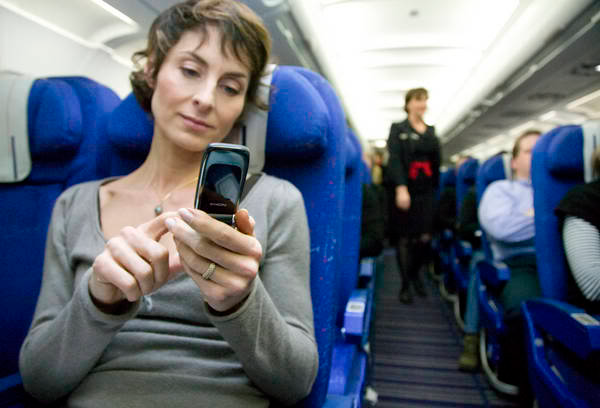About half of the time when I fly, I forget to turn off my cell phone during taxi and takeoff. For that indiscretion, I am an international terrorist responsible for… for…
Well, for nothing.
Because as the Federal Aviation Administration well knows from its own tests, there is absolutely no reason to turn off your electronic devices during taxi, takeoff and landing. There are no airplanes that have fallen from the sky. No accidents attributable to Alec Baldwin, busted for playing a video game with friends while sitting on the taxiway. No instruments going haywire. In fact, reports are that pilots use tablets and other electronics in the cockpit throughout their flights.
This entire ban was a bit of politically correct nonsense promoted by the luddites who despise modern technology in general and cell phones in particular. Granted, I am not crazy about the number of people whose cell phones start pinging the moment the plane touches down, or the cacophony of SMS and email messages that the entire airplane seems to receive at the end of every flight.
On the other hand, I have often called someone picking me up at the airport to let them know I was on the ground. And have checked my email while waiting for the mulling herd to decide to traipse off the airplane.
Which is why I am delighted to hear, via the New York Times, that the Federal Aviation Commission is re-thinking it rules about these devices. Granted, the plan does not currently include smartphones, but this is a step in the right direction.
Why has the FAA not done this already? To begin with, it is expensive. To give its blessing, the FAA would have to test every single device (and every independent model) on every single aircraft (and every single model). And with a recession on, that’s taxpayer money that is hard to come by. Now, however, the FAA has asked for the private companies who want to get their products approved for use to join in and support the FCC’s need for assistance in this project.
The idea would be that manufacturers would shell out good hard cash to get their products certified by the FAA. Maybe it is just me, but I don’t think device manufacturers will bother. First, they will just check to see that their device is like one already approved, and then silently let theirs be used as well. Second, it is not the purpose of tech companies to pay blackmail to a government agency to enable their devices to be used if that use has no proven dangers.
So I applaud the FAA for having the courage to re-open a closed book and to revisit the use of technology devices on flights in American airspace. And hope that they reach the right decision fairly soon, before I lost my high score title on Angry Birds.
Thanks for reading CPA Practice Advisor!
Subscribe Already registered? Log In
Need more information? Read the FAQs
Tags: Technology





